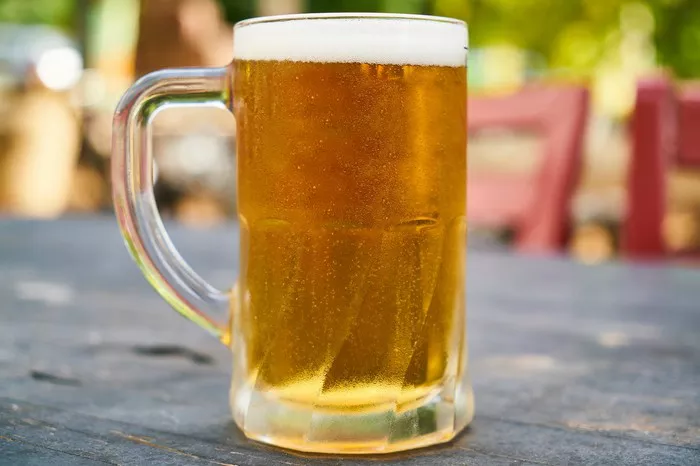Beer, a beloved beverage enjoyed globally, has a rich history dating back thousands of years. Among its diverse varieties, India Pale Ale (IPA) stands out for its distinct flavor profile and fascinating origin story. Understanding where IPA beer comes from involves delving into its historical context, evolution of brewing techniques, and the cultural impact it has had over time.
Early Beginnings and Evolution of Beer
Beer has been brewed since ancient times, with evidence of early beer-like beverages dating back to ancient Mesopotamia and Egypt. The art of brewing spread across civilizations, each contributing unique ingredients and techniques that shaped the beverages we know today. From the fermented grains of the Sumerians to the monastic brewing traditions of medieval Europe, beer evolved alongside human civilization.
In medieval Europe, beer brewing became a communal activity, often centered around monasteries where monks perfected recipes and techniques. The introduction of hops in the Middle Ages revolutionized brewing by adding flavor and preserving beer, giving rise to the styles that would eventually include IPA.
The Rise of Pale Ales and British Brewing Traditions
In 18th-century Britain, pale ales gained popularity among the aristocracy and burgeoning middle class. These beers were brewed with pale malts and had a lighter color and crisper taste compared to their darker counterparts. As brewing technology improved and trade expanded, brewers began experimenting with stronger, hoppier versions of pale ales.
The term “India Pale Ale” emerged during Britain’s colonial expansion into India. British expatriates and soldiers stationed in India craved a taste of home, including their favorite brews. Traditional pale ales did not survive the long sea journey to India intact, prompting brewers to develop a style that could withstand the voyage while maintaining its quality.
The Birth of India Pale Ale
IPA beer was born out of necessity and innovation. Brewers in London and Burton-on-Trent, such as George Hodgson of the Bow Brewery, began crafting a new type of pale ale specifically designed for export to India. These early IPAs were characterized by their higher alcohol content and generous hopping, which acted as a natural preservative during the lengthy journey by sea.
By the early 19th century, IPAs had become a staple export to British colonies, celebrated for their bold hop flavors and robust character. The style continued to evolve as brewers competed to produce the finest IPA, with regional variations emerging across Britain.
See Also: Where is the expiration date on beer?
Impact on Global Brewing Trends
The success of IPA beer in the 19th century had a profound impact on global brewing trends. As trade routes expanded and British influence spread, IPA became synonymous with quality brewing craftsmanship and adventurous flavors. Breweries in other countries, including the United States and Australia, began experimenting with their own interpretations of IPA, leading to the development of American IPA and Australian IPA styles.
In the United States, the craft beer movement of the late 20th century revitalized interest in IPA beer. American craft brewers embraced the hop-forward characteristics of IPA, pushing the boundaries with innovative hop varieties and brewing techniques. This resurgence not only introduced new flavors to the beer landscape but also fueled a renaissance in brewing creativity and consumer appreciation for diverse beer styles.
Modern Variations and Brewing Innovations
Today, IPA beer continues to evolve with a myriad of variations and sub-styles catering to diverse tastes. From traditional English IPA with its balanced bitterness and malt backbone to West Coast IPA known for its citrusy and piney hop flavors, the range of IPA styles reflects the creativity and diversity of the global brewing community.
Modern brewing innovations, such as dry hopping and experimental hop blends, have further expanded the flavor profiles of IPA beer. Brewers are constantly pushing boundaries with techniques like kettle souring and barrel aging, creating unique hybrid styles that blend characteristics of IPA with other beer types.
Cultural Significance and Consumer Preferences
Beyond its technical evolution, IPA beer holds significant cultural importance. It has become a symbol of craftsmanship and innovation in brewing, celebrated at beer festivals and competitions worldwide. The popularity of IPA has also influenced consumer preferences, with many beer enthusiasts seeking out new and exciting hop-forward brews.
In recent years, the popularity of IPA has inspired collaborations between breweries and even cross-cultural adaptations. Brewers in countries like Japan and Brazil have put their own spin on IPA, incorporating local ingredients and brewing traditions to create distinctly regional variations.
Looking Ahead: IPA in the 21st Century
As we look to the future, IPA beer remains at the forefront of the craft beer movement. Its ability to adapt and evolve while retaining its essential characteristics ensures that IPA will continue to captivate beer lovers around the globe. Whether enjoying a classic English IPA or a bold, experimental variant, the enduring appeal of IPA lies in its rich history, diverse flavors, and ongoing innovation within the brewing industry.
In Conclusion
The story of IPA beer is one of adaptation, innovation, and global influence. From its humble origins in 18th-century Britain to its current status as a cornerstone of the craft beer revolution, IPA beer exemplifies the dynamic relationship between tradition and experimentation in brewing. As beer enthusiasts continue to explore new flavors and brewing techniques, IPA beer stands as a testament to the enduring legacy of one of the world’s oldest and most beloved beverages.


